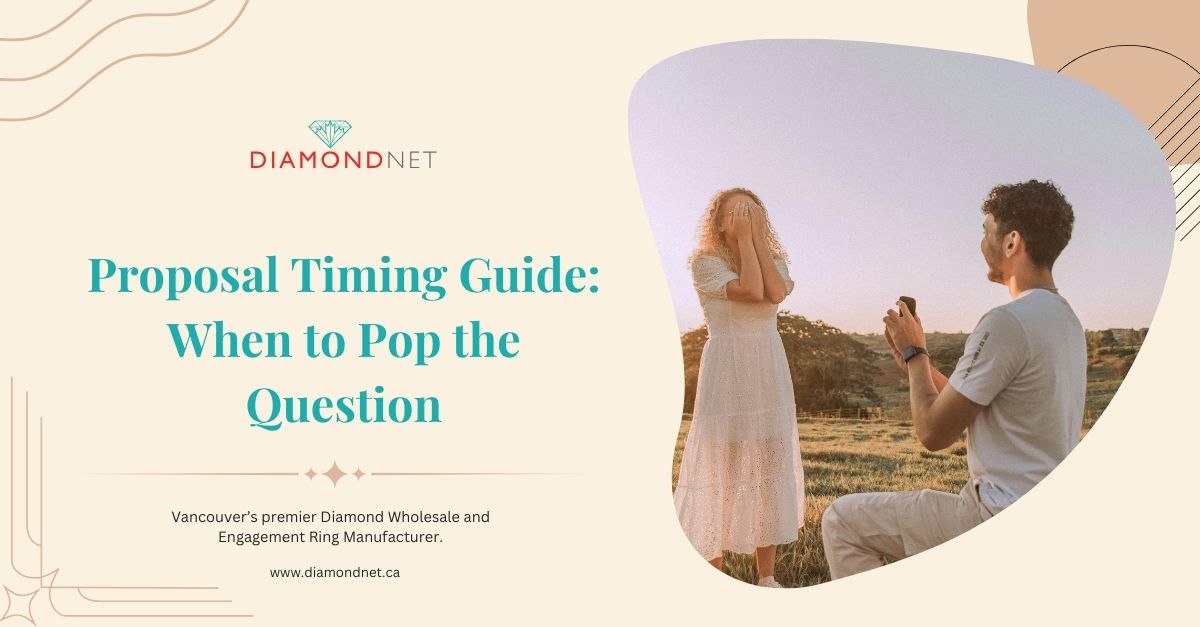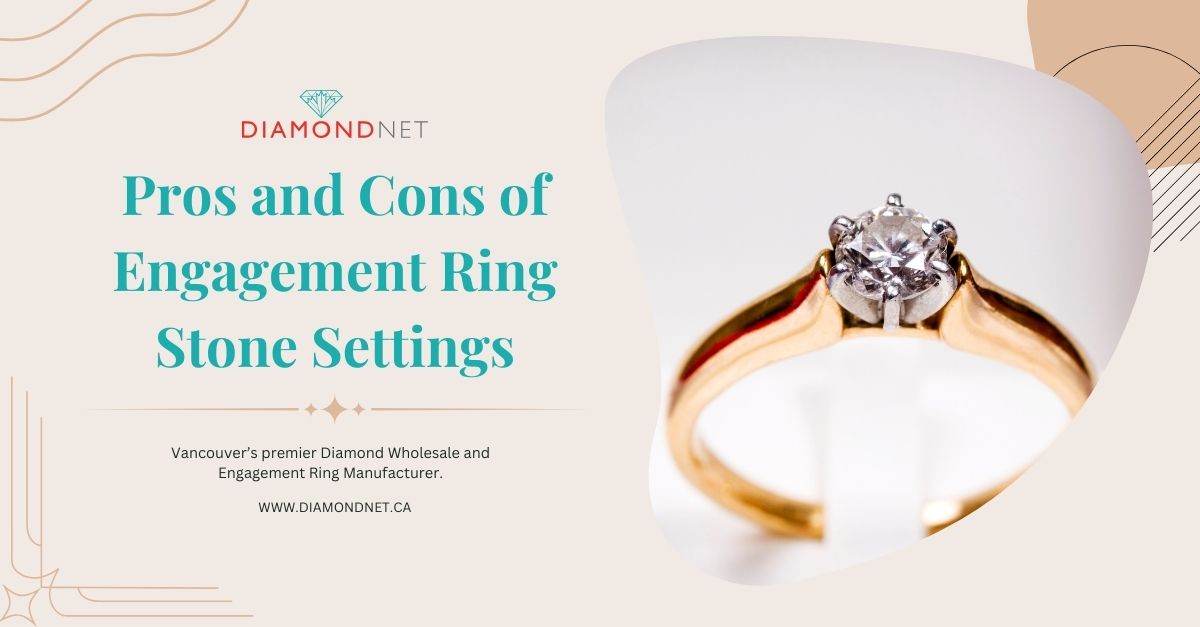Deciding when to propose is one of the most exciting — and nerve-wracking — choices you’ll make in a relationship. It’s completely normal to feel unsure about the timing.
While some couples feel ready early on, others take more time. The truth is, there’s no one-size-fits-all answer. It’s not just about how long you’ve been dating — it’s about emotional readiness, shared values, and honest conversations.
This guide will walk you through the emotional signs, relational milestones, and key questions to help you decide when the moment feels right. That way, your proposal can feel thoughtful, meaningful, and perfectly timed for both of you.

Here is the Quick Answer:
There’s no perfect timeline for proposing—it’s about emotional readiness, trust, and shared goals. If you’ve had honest conversations about the future, navigated challenges together, and feel secure in your commitment, it may be time to propose. Look for signs like mutual respect, aligned values, and healthy communication. Avoid rushing due to pressure or dates. Instead, plan a proposal that reflects your partner’s personality and your relationship’s story. When the time feels right, make it meaningful—with a ring as unique as your love. For expert guidance and custom design, DiamondNet can help bring your proposal vision to life.
What are the signs you’re ready to propose?
There’s no perfect timeline for popping the question — but there are meaningful signs that you and your partner are emotionally aligned and ready for a lifelong commitment.
Your Relationship Is Built on Trust and Respect
Healthy relationships are grounded in mutual support, respect, and honest communication. If you’ve navigated challenges together without losing your sense of partnership, it’s a strong sign you’re prepared to take the next step.
You Feel Safe, Secure, and Comfortable Together
If you’re no longer questioning your relationship — and feel truly at ease being yourself — that comfort is more than convenience. It shows emotional safety and long-term compatibility.
You’re likely ready if the thought of a shared future brings calm and clarity, not pressure.
You’ve Talked About Marriage Before
Proposals shouldn’t come out of the blue. If you’ve discussed marriage or shared long-term goals — even casually — and the idea feels mutual and positive, it’s a green light to move forward.
These conversations don’t have to be formal, but they should reflect aligned values, timing, and hopes for the future.
Ready to reflect that connection with the perfect ring?
Explore custom engagement rings crafted to match your partner’s personality and your shared story.
Common Proposal Timelines and What Influences Them
While love doesn’t follow a schedule, many couples do tend to reach key milestones within a similar timeframe. Knowing the common patterns can help you assess your own relationship — not compare it.
Statistically, many couples get engaged between six months and two years of dating. This stretch often includes major bonding experiences — meeting families, travelling together, or facing challenges as a team.
During this period, you’ve likely had time to observe each other’s values, lifestyle habits, and how you handle both joy and stress. That emotional and practical insight lays the groundwork for a lasting commitment.
Every relationship moves at its own pace. Certain life events — like moving in together, navigating a crisis, or supporting each other through transitions — can either accelerate or delay your timeline.
It’s also common for one partner to feel ready before the other. What matters most is that you’ve had real conversations about the future and both feel grounded in your decision — not swept up in a moment or outside pressure.
If you’re feeling unsure, explore our article on getting engaged too soon for more insight into healthy timing cues.
Emotional and Communication Checkpoints Before Proposing
Before planning the big moment, it’s important to pause and reflect — not just on how you feel, but on how you both communicate and align emotionally.

Are you truly ready — beyond the romance?
Love is essential, but it’s not the only ingredient in a healthy marriage. Readiness means knowing how you and your partner handle conflict, navigate uncertainty, and support each other’s growth.
If you’re able to discuss hard things with care — and still feel like a team — you’re likely in a strong place to move forward.
Have you talked about marriage in depth?
You’ve probably exchanged thoughts about your future together. But before proposing, you should go deeper.
Talk about what marriage means to each of you: Do your goals line up? Have you discussed kids, money, and values? Are you both willing to show up and grow through the hard parts, not just the highlights?
Talking about marriage with your partner helps ensure your proposal is grounded in understanding, not assumptions.
Do you know what kind of proposal they’d love?
Some people dream of a big moment with friends and family. Others want something private and intimate. If you’ve had conversations — or picked up hints — about what your partner values, it’s worth planning accordingly.
For example, if they appreciate thoughtfulness and personal meaning, a custom engagement ring might be the most powerful gesture of all.
Key Relationship Milestones Before Proposing
Milestones aren’t just boxes to check — they reveal how well you’ve grown together and whether you’re both ready for the long-term partnership that marriage requires.
Here are a few moments that often signal deeper readiness:
You’ve Faced Real-Life Challenges Together
Arguments, setbacks, and stressful moments test more than patience — they reveal communication, resilience, and emotional safety. If you’ve weathered hard times without losing your connection, that’s a solid foundation.
You’ve Spent Time in Different Environments
From weekend getaways to family holidays or managing daily routines under one roof — different settings help you learn how your partner adapts, copes, and connects.
Feeling steady and supported no matter the situation shows you’re compatible on more than just surface levels.
You Share Core Values and Life Goals
Marriage thrives when two people are aligned on what matters most — whether it’s raising kids, career direction, or long-term lifestyle.
You don’t need to be identical, but shared vision builds clarity and trust.
You’ve Supported Each Other’s Growth
Healthy relationships evolve. If you’ve both encouraged each other’s personal goals — and grown stronger as a result — it’s a strong sign you’re ready to grow as a team, too.
How to Know If You’re Personally Ready to Propose
Before you buy the ring or plan the big moment, ask yourself these honest questions. Proposing is about more than love — it’s about long-term alignment and emotional maturity.
1. Are we both truly ready for marriage?
It’s normal to have nerves, but you should feel calm in your commitment — not pressured by timelines or comparison. Are you both grounded in the idea of partnership for life?
2. Do we share the same vision for the future?
Beyond love, do your long-term goals — around career, lifestyle, and family — align? Have you talked about where you want to live, whether you want kids, or what “success” in marriage means to each of you?
3. Have we worked through our differences in healthy ways?
Every couple disagrees. The real question is: how do you handle conflict? If you’ve worked through disagreements with care, compromise, and mutual respect, you’re likely ready for the next step.
Cultural and Family Considerations
Proposals aren’t just personal — they often carry emotional weight for families and cultural communities. Understanding these dynamics can help you create a moment that’s respectful, intentional, and aligned with your partner’s values.

Family Dynamics Matter
Some families place high importance on being involved in the proposal. Whether it’s asking for permission or organizing a gathering, these gestures can show respect and strengthen your relationship with future in-laws.
If your partner values their family’s input, consider discussing your plans with them in advance — not to get approval, but to honour what matters to them.
Cultural Traditions and Expectations
Proposal customs vary across cultures — from ceremony style to who’s involved, and even expectations around rings or gifts. Learning about your partner’s cultural background can help you avoid missteps and add meaning to the moment.
Stay True to Your Partner’s Values
While tradition matters, the most important thing is making your partner feel seen and respected. Ask yourself: What makes them feel loved? What kind of proposal would honour their beliefs, personality, and dreams?
When in doubt, open communication is your best guide.
How to Discuss Future Plans with Your Partner: A Step-by-Step Guide
Talking about marriage before proposing isn’t unromantic — it’s an act of love. These conversations build trust, deepen emotional safety, and help ensure you’re dreaming in the same direction.
Here’s how to open up those big-picture talks in a way that feels honest, not overwhelming.
Step 1: Set the Right Tone
Choose a quiet moment when you’re both relaxed — not distracted by stress or screens. These conversations are best when they feel natural, not like a “relationship performance review.”
Step 2: Start With What Matters Most
Open up about your personal values — around family, faith, career, and lifestyle. Ask each other what truly matters in life and love. This isn’t about perfect alignment, but understanding where you both come from.
Try: “What do you value most in a relationship?”
Step 3: Talk About Family and Kids
If either of you wants children, talk about when and how you envision that happening. Discuss parenting approaches and how you were each raised. Even if plans shift over time, this helps uncover compatibility and expectations.
Step 4: Align on Financial Values
Money can be emotional. Share how you think about saving, spending, and sharing expenses. Are you more spontaneous or a planner? Do you prefer joint or separate accounts?
Financial compatibility often means aligned attitudes, even if habits differ.
Step 5: Explore Career and Lifestyle Goals
Do you both want to settle down in the same place? Are you open to relocation? How do you balance work and personal life? Understanding lifestyle preferences helps you map a shared rhythm.
Step 6: Define What Marriage Means to You
Ask each other: “What does a strong marriage look like to you?”
Discuss your roles, hopes, and fears around commitment. It’s okay if your definitions differ — what matters is mutual understanding and emotional safety.
Step 7: Talk About Conflict and Repair
No relationship is free of conflict — but how you handle it defines your strength. Talk openly about how you each respond to stress, and what helps you feel heard during disagreements.
Try: “What helps you feel supported when we’re not seeing eye to eye?”
Step 8: Be Honest, Even If It’s Vulnerable
This isn’t about having all the answers. It’s about creating space to explore them together. The goal is to be open — not perfect — and to walk away feeling more connected.

Advice from Relationship Experts
There’s no perfect formula for when to propose — but relationship experts agree on a few key indicators: emotional awareness, communication, shared values, and timing that feels grounded in real life, not fantasy.
Here’s what some respected voices in dating and relationships suggest:
Amy Nobile’s “Three-Four Rule”
Amy Nobile, dating coach and author, recommends having four essential conversations within the first three months of dating to check for long-term compatibility.
She suggests asking:
- Is there chemistry?
Do you feel emotionally and physically connected? - Are your values aligned?
Do you share similar views on love, family, and honesty? - Is your partner emotionally mature?
Can they reflect on their past, own their feelings, and communicate with care? - Are you both ready to build something serious?
Have you talked about commitment and your vision for the future?
While this rule isn’t a deadline, it offers a helpful guide for gauging depth early on.
Emily Freeman on Ongoing Check-Ins
Dating coach Emily Freeman emphasizes the importance of checking in with both yourself and your partner over time. There’s no single “right” timeline — instead, look for consistent emotional alignment.
“You need to experience your partner in different seasons of life,” she explains. “How do they handle stress? Joy? Change? These moments show you who they truly are.”
She also stresses the importance of growing together, not just falling in love once. A strong marriage is built on learning, adaptability, and mutual growth.
When Not to Propose: Red Flags and Rushed Timing
Love can feel urgent — but lifelong commitment deserves clarity. If any of these signs are present, it may be wise to slow down before proposing.
You Haven’t Talked About the Future
If you haven’t discussed key topics like kids, money, or lifestyle values, a proposal might be premature. Alignment on long-term goals builds trust — and reduces surprises later.
You’re Feeling Pressured — Not Ready
Pressure can come from family, social media, or even internal timelines. But if you’re proposing to meet expectations rather than express shared readiness, pause. A proposal should feel like a celebration, not a box to check.
You Feel Uncertain or Insecure
Doubt doesn’t always mean “don’t.” But if uncertainty outweighs confidence — especially after reflection and conversation — it’s okay to wait. You’re not behind. You’re being thoughtful.
You’re Rushing Because of a Date
Planning your proposal around a birthday, holiday, or anniversary is common — but don’t let the calendar drive the decision. Proposals are about emotional timing, not external milestones.
4 Steps to Plan the Proposal After Timing Feels Right
Once you’ve had the important conversations and feel confident in your relationship, the next step is making the proposal as meaningful as the love behind it.
Here’s how to plan with heart:
1. Personalize the Moment
The most memorable proposals reflect who you are as a couple. Think about shared memories, inside jokes, or meaningful places.
Whether it’s a quiet walk, a big celebration, or something completely your own — make it feel like you.
2. Plan the Details That Matter
Even spontaneous moments benefit from a little prep. Consider what matters to your partner — photography, a private setting, or having family nearby.
A little planning helps create space for emotion without distraction.
3. Include Loved Ones (If They’d Appreciate That)
If your partner is close with family or friends, involving them can add joy and significance. That might mean asking a parent ahead of time, or planning a surprise celebration right after the “yes.”
Just be sure it aligns with what your partner would love — not just what tradition suggests.
4. Have the Ring That Reflects Your Story
Choosing the right ring is part of the magic. A custom piece can reflect your partner’s personality, values, and the journey you’ve shared.
Discover why custom engagement rings are worth it — or book a personalized consultation with DiamondNet to create something truly unforgettable.
Conclusion
There’s no universal answer to how soon is too soon to propose — because the real measure isn’t time, but trust, connection, and shared vision.
If you and your partner have had honest conversations, supported each other through life’s ups and downs, and feel emotionally and practically ready, your timing is likely just right.
Take the pressure off the calendar. Focus on what makes your relationship strong — and let your proposal reflect that story.
Whether you’re ready to design the ring or still exploring your next step, DiamondNet offers expert guidance, custom ring design services, and one-on-one consultations to make your proposal feel as personal as your love.
Explore top engagement ring trends in Vancouver or schedule a visit to start planning a moment your partner will never forget.



